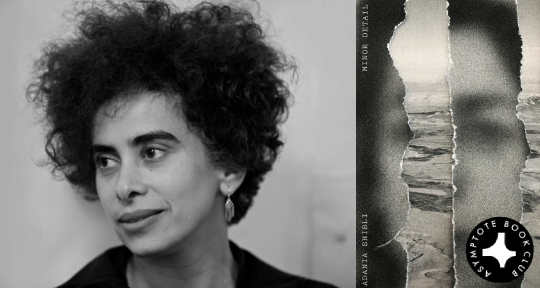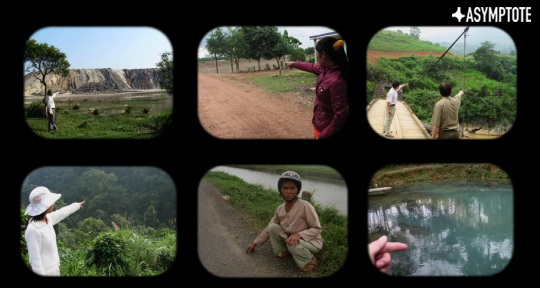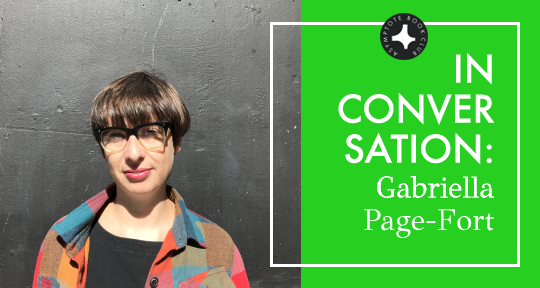Bringing you translated literature from around the world during troubling times, this week’s In This Together presents a selection of Spanish writer Jordi Doce’s journals. Translator Lawrence Schimel introduces this work and its significance below:
These entries come from Spanish poet, translator, and critic Jordi Doce’s careful attention to and recording of the minutiae of life under quarantine, his looking inward (while at the same time observing the world around him) just as Madrid began that explosive & expansive flourishing that is Springtime.
Originally published on his blog, forty entries (the literal “forty days” of the Italian “quarantena” that ships suspected of carrying disease were required to be isolated before passengers and crew were allowed to disembark) spanning eight weeks—Sunday, March 15th through Monday, May 11—are about to be published in book form under the title La vida en suspenso (Life on Hold), by Fórcola, in June 2020.
Jordi has been a steady if intermittent diarist since the Spring of 1997, as he notes in La puerta del año. Enero-febrero 2004 (The Year’s Gate: January-February 2004), the first of his diaries to be published in book form. He continues to write his diaries, first and foremost “out of a need to order my thoughts, to soothe them, but also with a will of lightness, almost weightlessness, as if wanting to remove the thorns of reality.” Sometimes (as in the case of these entries) he also shares them online or in book format, when the observations can stand on their own or make a sort of thematic sense or unity.
I began translating these entries into English while Jordi was still writing them—a curious twist which perhaps helped him at a dark moment. As he noted, “the tone has grown darker and even bitter with the days. I guess it was inevitable, but I resist. I don’t want to turn these notes into an account of aggravations and laments.”
He wrote: “If these notes brought a bit of serenity to friends, a bit of patience and good humor, I’d be satisfied.” Hopefully, his satisfaction is even greater as these notes and observations are now available to an even broader audience, in English translation.
Confinement Notebook
by Jordi Doce
Confinement Notebook 8
Tuesday, March 24, 2020
The midday sun (a clean sun, like one between storms) warms the large cauldron of the patio. One can see clothes hung out to dry at the rears of buildings and people (few) working on their balconies. Others simply emerge to get some air or smoke a cigarette. The light falls directly on the window and dazzles me. I’ve had to lower the blind. In the street it’s cool, but here I note how the studio heats up in just a few minutes. I feel the urge to greet the sun, like in Frank O’Hara’s poem, but I don’t yet have the necessary level of intimacy. I prefer to celebrate it with words. READ MORE…










Translation Tuesday: “Marigô” by Cidinha da Silva
“Can I call you marigô, too?”
A lexical misunderstanding leads to a hilariously awkward exchange in Cidinha da Silva’s “Marigô,” our selection for this week’s Translation Tuesday. “Marigô” is an exemplar of the crônica form, a uniquely Brazilian genre of journalistic writing that combines slice-of-life anecdotes with (often ironic) social commentary. Cidinha da Silva, one of Brazil’s most dynamic and prolific contemporary writers and cronistas, utilizes the third-person present tense to capture the conversational nature of the form, mimicking the complex rhythm and set-up of a joke. Here the punchline not only provides laughs, but also a wry statement on Afro-Brazilian identities and the cultural importance of language.
Samantha worships her friend Dandara—for her beauty, her culture, her intelligence, her knowledge of the world, and, above all, her integrity of purpose. Samantha views Dandara as an activist even when talking with her mother on the phone. Every time Dandara calls—which isn’t just once a day—she greets her mother with an “Oi oi oi, Marigô, calling just to say hello!”
Samantha’s face lights up every time. Somehow she got it in her head that Marigô meant “mother” in Yoruba. At home, she wrote down the word in her small dictionary-diary, where she’s been recording the African words that circulate daily in Brazil. She has a ton already—it’s just a matter of finding the right time to start using them in her stories. Dandara thinks her co-worker is an Afro-nut, the kind of person who wants to transform anything and everything into an episode of African rebirth.
On Dandara’s birthday, her mother decides to surprise her and shows up at her work to take them to Rhinosaurus’s, her daughter’s favorite fast food joint. While waiting for her daughter in the parking lot, she amusingly reads Barack Obama’s biography. Samantha ends up leaving work before Dandara; when she sees two black hands behind a steering wheel holding a copy of the biography of the president of the United States, she goes Afro-nuts. Only a fascinating person would read such a book, she thinks. She has to introduce herself, has to get to know that woman so she can soak up all of her knowledge. READ MORE…
Contributors:- Ana Luiza de Oliveira e Silva
, - Daniel Persia
; Language: - Portuguese
; Place: - Brazil
; Writer: - Cidinha da Silva
; Tags: - anecdotes
, - Brazilian literature
, - Journalism
, - social commentary